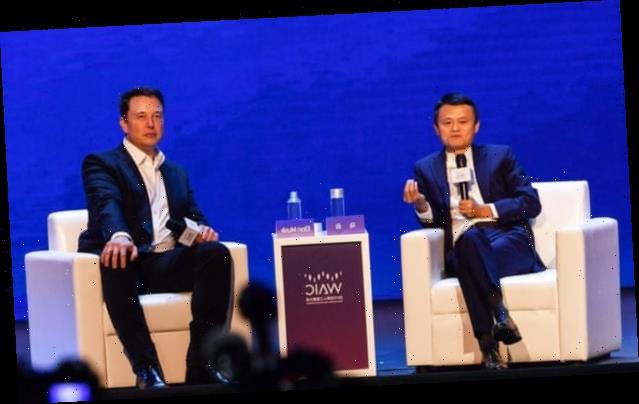This week the American National Security Commission on artificial intelligence released its final report. Cursory inspection of its 756 pages suggests that it’s just another standard product of the military-industrial complex that so worried President Eisenhower at the end of his term of office. On closer examination, however, it turns out to be a set of case notes on a tragic case of what we psychologists call “hegemonic anxiety” – the fear of losing global dominance.
The report is the work of 15 bigwigs, led by Dr Eric Schmidt, the former CEO of Alphabet (and before that the adult supervisor imposed by venture capitalists on the young co-founders of Google). Of the 15 members of the commission only four are female. Eight are from the tech industry (including Andy Jassy, Jeff Bezos’s anointed heir at Amazon); two are former senior Pentagon officials; and the tech sector of the national intelligence community is represented by at least three commissioners. Given these establishment credentials, the only surprising thing is that the inquiry seems to have been set up during Trump’s presidency, which suggests that it was organised by the “deep state” during the hours of one to four AM, when Trump was generally asleep.
What have these luminaries concluded? Basically that there’s a “new era of competition” ahead, which “promises to change the world we live in and how we live within it”. The US “can either shape the change to come or be swept along by it”. There are “adversaries” out there (name begins with “C”) who “are determined to turn AI capabilities against us”, and one of them (see above) is “determined to surpass us in AI leadership”. Advances in AI confer significant first-mover advantages, so “now we must act – the United States should invest what it takes to maintain its innovation leadership, to responsibly use AI to defend free people and free societies, and to advance the frontiers of science for the benefit of all humanity. AI is going to reorganise the world. America must lead the charge.” Cue trumpet voluntary.
Pathological anxiety about China runs through the entire document like the words in a stick of Blackpool rock. “On a level playing field,” it burbles, “the United States is capable of out-innovating any competitor.” But apparently there is “a fundamental difference in the US and China’s approaches to AI innovation that puts American AI leadership in peril”. The playing field, it seems, is not level because US tech companies “are not instruments of state power”. Since “China is organised, resourced, and determined to win the technology competition”, the US approach has to change. What’s needed, apparently, is “a hybrid approach meshing government and private-sector efforts to win the technology competition”.
Pause, for a moment, to extract the signal from this message. First, the gobbledegook about “AI” is in fact almost entirely about machine learning, a flaky technology that has an insatiable demand for detailed data about humans and their activities. The Chinese are ahead because their tech companies have to turn all their data over to the authorities; Americans are hobbled because, while their state can always get the data from the tech companies that hoover it up, sometimes it has to jump through legal hoops to get it. The “hybrid approach” that is deemed necessary involves “meshing” the US government with the country’s tech companies.
Now what might that imply? You only have to ask the question to know the answer. If American tech giants are finally recognised as strategic partners of the US government in the coming existential hegemonic struggle with China, then Washington’s enthusiasm for curbing said monopolies will rapidly decrease. Indeed, this may already be happening, if an inspection of the number of tech-company insiders who have been recruited by Biden is anything to go by. And the argument made to the US Congress by, among others, Mark Zuckerberg – that shackling US tech giants will guarantee Chinese hegemony – will once again find a ready audience in Washington.
Reading the commission’s report brings with it a strange sense of deja vu. It reminds me of the moment in October 1957 when the Eisenhower administration discovered that the Soviet Union had successfully launched a satellite into orbit, thereby triggering a chronic outbreak of hegemonic anxiety in the US. That shock prompted the kind of massive reorientation and resource commitment that Eric Schmidt and his fellow commissioners are now calling for – and ultimately led to the creation of the Arpanet, the precursor of the internet we all use today.
What’s worrying about that historical parallel is that the American response to the Sputnik challenge did not undermine its democracy – and in fact in the long run may have led to the eventual implosion of the Soviet regime. But if Schmidt and co have their way now, the US might be left as the hollowed-out shell of a republic facing a dominant and data-fuelled totalitarian China. The technological has been political for the past two decades; from now on it’ll be geopolitical. And either way democracy will be the loser.
What I’ve been reading
Future fantastic
Touching the future: Stories of systems, serendipity and grace. Lovely essay in the Griffith Review by Genevieve Bell.
Get well soon
Five Pandemic Mistakes We Keep Repeating. Great piece in the Atlantic by Zeynep Tufekci, consistently the most informative writer on the crisis.
Don’t even think it
Neuroprivacy as a Basic Human Right. Really intriguing piece about tech attempts to read our minds.
Source: Read Full Article
